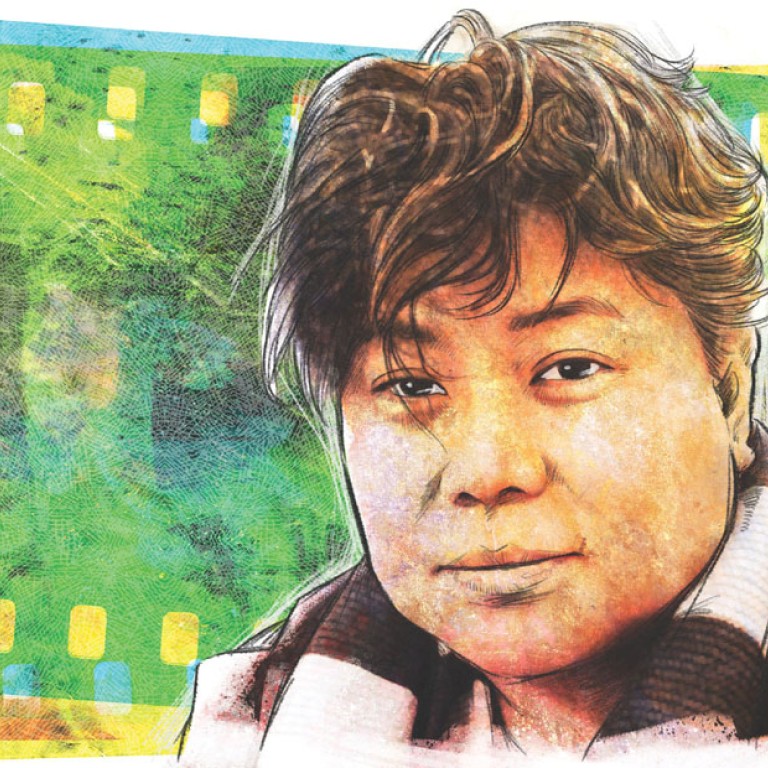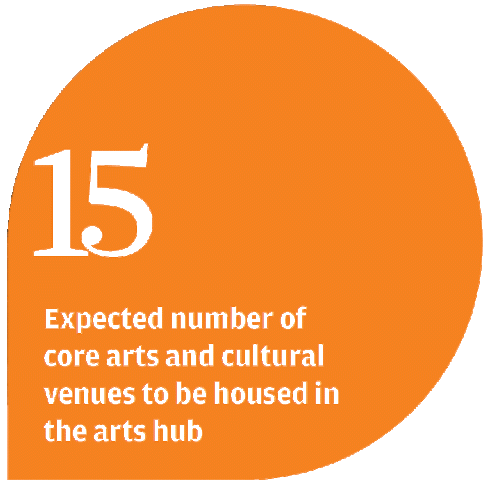
'We can't afford another generation too lazy to think', says arts adviser
Ellen Pau wants to bring more creativity to the city with her new roles at the Arts Development Council and the West Kowloon arts hub
Ellen Pau feels she is about to embark on a new life. Her membership in the Arts Development Council and the West Kowloon Cultural District Authority marks not just a new chapter in her artistic career but also an opportunity for her and her peers to make a difference.

Just last week, the co-founder of media art collective Videotage was appointed to the arts hub's interim acquisition committee, which has a strong say on the development of the collections that will adorn the cultural district's museums.
Pau has yet to receive details of her precise duties at West Kowloon, but she has big plans for the Arts Development Council after being elected to the funding body.
Armed with nominations from award-winning director Johnnie To Kei-fung, a former council member, and prominent independent filmmaker Vincent Chui Wan-shun, Pau was elected in October to represent the film-arts sector, beating Li Shao-ming by 1,370 votes to 327.
In her election platform, she pledged to promote the culture of the moving image, one of the areas that will be covered by West Kowloon's first museum, M+.
The film and television industries, broadcasting licences, intellectual property and the revitalisation of old industrial buildings as artistic spaces are among the issues of long-term cultural development that she is concerned with, as is the development of West Kowloon.
As one of nine newly elected members, Pau hopes to send a clear message to the council that the arts community will keep a close eye on its funding body, which she says must respect its stakeholders. She hopes to change the council's piecemeal funding culture and to raise the profile of the moving image, which she feels is undervalued.
"We are surrounded by urban screens, from the smartphone interface and ATMs to facades of skyscrapers. But how do we understand the moving image? Is it just advertising? Can we do something more creative?"

"Fresh Wave offers young people a taste of how the film industry works, but I hope to connect the culture of short films and video with the wider public."
"You don't have to be an industry professional to make films. We all make short films and videos with our mobile phones."
Pau says the city's urban screens should play a key role in promoting the culture of the moving image. Hong Kong Television Network's plan for mobile television, introduced after the station run by tycoon Ricky Wong Wai-kay was denied a free-to-air licence, can also provide a promotional channel, she adds.
Pau developed her interest in visual images in her secondary school's photography darkroom, and began making shorts using Super 8 film and video. In 2001, her work was shown at the Hong Kong pavilion at the Venice Biennale.
Pau co-founded Videotage in 1986 and the Microwave International New Media Arts Festival, for which she serves as curator, in 1996. She has lectured at various universities and institutions.
She combines her life as an artist with a day job as a medical radiographer - something she has done for 28 years since she graduated from Polytechnic University.
She has vivid memories of New Year's Eve 1992, when her night shift at Queen Mary Hospital in Pok Fu Lam brought her face to face with tragedy: as 1993 began, the emergency room began to fill with injured young revellers. It was the night of the deadly stampede in Lan Kwai Fong, which killed 20 and injured 71.
In the early hours of another morning, Pau received a young man in her office.
"He was shivering. He had killed his friends' family who had connections with the triads," Pau recalls. "There were a lot of men in black suits in the corridor and they were being held off by security guards. He was hiding in my room because it was safe. It was like a movie."
Pau says that as artists grow more conscious of the world, they become more aware of the importance of freedom of speech, the cornerstone of creativity. But she is concerned not just about the danger to freedom of speech, but also the government's failure to think creatively.
She points to Brazil, where the government gives small sums to some citizens to buy books, music or cinema tickets.
"When you decide what to buy, you are already going through an art-appreciation process, during which you will get a better understanding of not just yourself, but also the world around you. The thinking process will inspire you to become more creative," she says.
"What we want is young people who are sensitive to the world around them. Hong Kong can't afford to have another generation of young people who are too lazy to think. We are not worms that just eat and excrete."
Ellen Pau
52
qualifies as a diagnostic radiographer, Hong Kong Polytechnic; MA in visual studies, Chinese University
1986: co-founds Videotage
1996: founds Microwave International New Media Arts Festival
2014: elected to Arts Development Council; appointed to interim acquisition committee, West Kowloon Cultural District Authority
(1984), (video, 1988), (featured at Hong Kong Pavilion, Venice Biennale, 2001)

